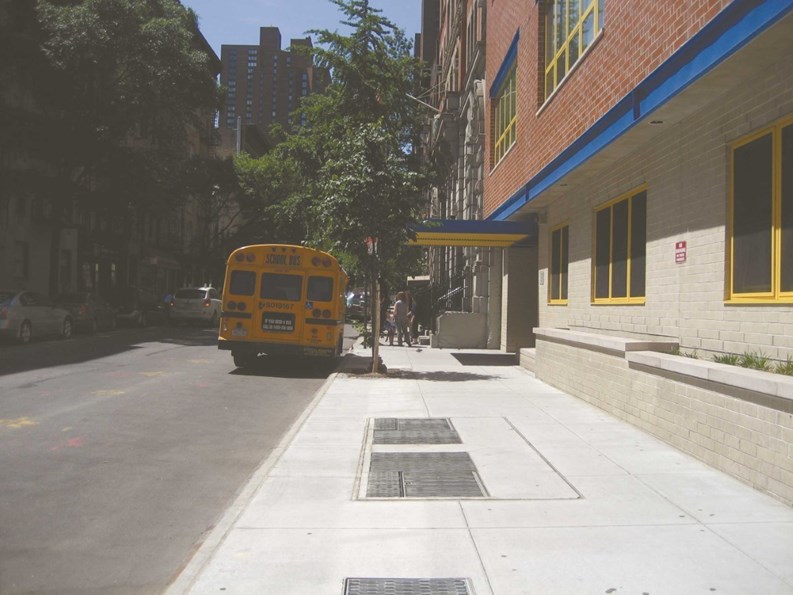Most cooperatives and condominiums in New York City traditionally own both the building and the land around it. There is, however, a real estate scenario where the cooperative (and in rare instances, the condominium) owns the building, but not the land on which it sits.
This situation is what’s called in real estate parlance “a ground lease,” where the co-op typically has a long-term lease on the property, from 30 or 50 to more than 100 years in many cases. In this instance, the building sponsor leases the land, sometimes from the City of New York, or sometimes from an adjacent business, third party developer or even a religious institution. This ground lease sets the terms of the lease; the length of the lease, the renewal terms and the rent payable under the lease.
Real estate lawyers often shy away from this scenario and buyers sometimes are caught unaware or are wary about committing to such an arrangement, according to Jacky Teplitzky, a real estate broker with Prudential Douglas Elliman.
Some notable buildings with ground leases include Battery Park City, the Excelsior at 303 East 57th, the Trump Plaza at 167 East 61st Street, the Sovereign at 420 East 59th Street, One Carnegie Hill, a condop at 215 East 95th Street, 385 East 67th Street, and 150 East 61st Street, to name a few. There are roughly 100 ground lease co-ops in the city and Battery Park City may be one of the only neighborhoods in Manhattan where the majority of buildings have them.
Teplitzky is a broker familiar with several buildings in this situation, namely the Azure, a new construction at 333 East 91st Street, the Excelsior, One Carnegie Hill and several residences at Battery Park City, for instance. She recently held a standing-room-only seminar explaining the advantages and/or potential drawbacks of buying into a land leased building.
Pros and Cons
Real estate attorney Sandor Krauss wrote on a blog on Brick Undergroundthat he has invested in two such properties. He explains the pros and cons of a land leased building this way. Disadvantages, he says, rests with the fact that co-ops will have a hard time getting financing, since mortgage companies generally want to secure both the building and land as collateral. This isn’t possible if the co-op doesn’t own the land. Lenders may be reluctant to extend credit if the lease is scheduled to expire within 30 years. Most ground leases require the owner’s consent before boards can proceed with building renovations, such as new elevators or lobby redesigns. And, lastly, he notes, maintenance fees are likely to be high, since the cost of the lease on the land is paid for by the unit owners.
Another thing about ground lease fees, which are factored into residents' monthly payments, is that they may not be not fixed and therefore may be subject to hefty increases by the sponsor or landowner. For example, BPC owners faced the prospect of their rents doubling when the leases expired this year. A deal was reached with the city though to moderate the rate increase. In 2012, ground rents paid collectively by owners in the 11 buildings were expected to spike 63 percent from this year's level, to $14.7 million in 2012. Under the new agreement, rent will now increase by 33 percent next year.
But there is one other important factor, too, Krauss says. “The ultimate disaster for buyers—though admittedly rare—is that at the end of the lease, assuming no automatic renewal, the building reverts to the property owner. That could leave shareholders with no rights to occupy their units and no equity in their shares, and may result in unit owners becoming renters.”
Teplitzky’s seminar featured Lior Aldad, an attorney with Aldad & Associates, who specializes in dealing with land leased properties. Especially in the case of the newly-built Azure, he noted the leasing arrangement is structured so that it enables owners to purchase larger units with greater amenities than would be otherwise available in comparable Upper East Side developments.
Teplitzky says that residents need to understand that while their maintenance or common charges will be slightly higher in a land-leased building because a portion is going towards paying the lease or rent on the land, that you will also get better taxability benefits and more purchasing power over the long term.
“We believe Azure owners are the beneficiaries of the best ground lease currently in effect in New York City,” Aldad says. “In exchange for modestly higher maintenance charges, this lease assures buyers the right to purchase the land, 20 years of tax benefits, the ability to deduct 41 percent of condop maintenance fees and purchase prices that are extremely attractive for large Upper East Side residences.”
A New Lease on Life
Douglas MacLaury, senior vice president of the Mattone Group, a developer of the Azure, along with the DeMatteis Organization, feels the project is a win-win situation for both the developer, the city, the co-op board and ultimately, the unit owners. In exchange for building a public middle school (MS114) on-site, the city agreed to let the developers build The Azure, a luxury 34-story, high-rise co-op, adjacent to the new school.
The Educational Construction Fund, a public benefit corporation created by the state Legislature to develop combined occupancy structures, owns the land at the Azure. In exchange for bonus air rights that allowed for increased height at the building and other tax incentives eventually passed on to the purchasers, the developers built the middle school at no cost to taxpayers.
The Azure, located at the corner of 91st Street and First Avenue, features top quality finishes, high-end appliances and amenities, including a children’s playroom, a game room, lounge and event space, a fitness center and two landscaped rooftop terraces. The building also offers 24-hour concierge and valet services, a live-in resident manager, Fresh Direct and free bicycle storage.
Owners get a 421a 10-year tax abatement with an additional 10-year tax benefit, said MacLaury. The ground lease, he noted, runs for 125 years while giving the condop the right to purchase the land in the 75th year. The building, even though it has a cooperative structure, is run just like a condo, he said. One of the advantages of the Azure, he added, is that the building has the largest number of residential four-bedrooms on the Upper East Side, a great bargain for families looking for a little bit extra living space.
Opting Out
Not every building is comfortable with its land lease arrangement. Teplitzky says that usually there are three options in the land lease scenario: extend or renew the lease arrangement; raise money in the building reserve fund to purchase the land—usually done by assessing owners; or take out a mortgage and finance the purchase of the land.
One such co-op, Two Fifth Avenue, opted out of the arrangement in 2005 by buying the land directly from the sponsor developer, Rudin Management. The board’s 20 year ground lease was about to expire and the co-op had been trying for years to buy the land.
Then long-time board president Adelaide Polsinelli (a commercial real estate broker) said she orchestrated the sale on behalf of the board. The co-op owners paid $29.25 million for the land underneath their 20-story building, which is located a short distance from Washington Square Park. The Rudin family, a well-known New York real estate clan, built Two Fifth Avenue in 1952 and converted it to a co-op in 1986. For all that time, the Rudins kept the land underneath and leased it to the co-op board.
The co-op board purchased the land, said Polsinelli, using 110 percent financing. The co-op had no debt and the loan was far below market value on the property. “In order to cover the interest payments, which were very close to the amount the ground rent could have reached, we raised the maintenance by 14 percent but it took our co-op from a 35 percent deductibility to a 60 percent deductibility so it ended up being a wash to the average shareholder,” Polsinelli said. If the lease had been allowed to expire, she added, ground rent would have gone up by over 35 percent.
As to the benefits of a co-op owning the land outright, Polsinelli believes that was the better option in the long run for her particular building. “Apartment values remain competitive with comparable apartments if the co-op owns the land rather than not. It’s easier to get financing if a co-op owns the land. Additionally, the real estate tax deductibility is passed on to the shareholders through a schedule A deduction.”
Debra A. Estock is managing editor of The Cooperator.







2 Comments
Leave a Comment